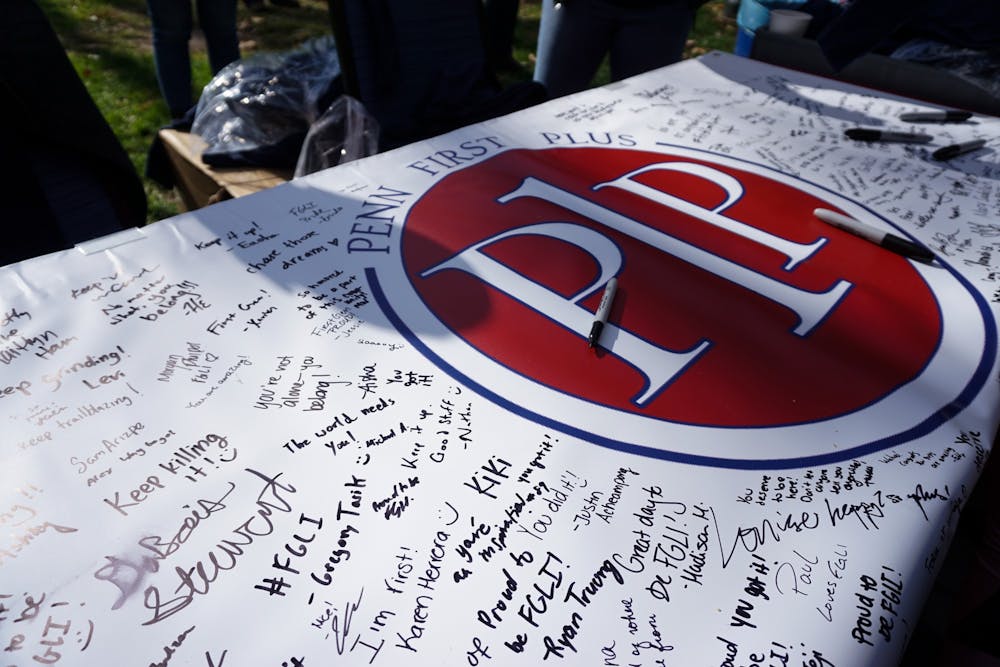Like many of my peers, I’m still in shock. The past couple days have honestly felt like a dream; it’s difficult to stomach the fact that by the end of the week, I have to move out of my apartment on campus, and finish the rest of the semester from home. Even as a sophomore who lives three hours away from the University, coronavirus has been stressful enough for me.
I can’t imagine how difficult this is for international students, FGLI students, and graduating seniors. This is why Penn’s administration must be more transparent with the decisions that they have been making over the past number of days, and will continue to make over the coming weeks.
While I am enraged by and personally disagree with Penn’s decision to evict students living on campus, I am an expert in neither infectious disease nor public health, so I will assume that the only way to ensure students’ safety is to prevent them from remaining on campus. Considering that Penn followed in the footsteps of peer institutions, including Harvard and other universities in Philadelphia, including Temple, it seems as though the decision, while incredibly disruptive, was somewhat warranted.
Instead of criticizing the policy itself, I take issue with its delivery and ambiguity: It generates more questions than it answers, which is unacceptable from an administration that is accountable for more than 26,000 students. The announcement made on Wednesday, March 11, updated by a slight extension the following day, mandates students living on campus to vacate their dorms and apartments on March 17 while simultaneously forbidding students away from Philadelphia from returning.
Across the University, the sentiment is that Penn was not only late in communicating its message, but also incredibly unreasonable in creating the timeline. Students were clearly shocked and were left reeling, often far away from campus, where there is little they can do about it. The prohibition on returning to campus (which has been ignored by many) is only one of a number of concerns that have yet to be addressed by Penn’s administration.
To Penn’s credit, many concerns have already been addressed. Some professors and teaching assistants have been reaching out to students. Student Registration and Financial Services confirmed that students employed in work-study jobs are able to receive payment for their standard hours despite being away. Furthermore, Penn’s Residential Services has pledged to offer a partial refund for those on housing or dining plans.
However, there are a number of University resources whose delivery has become unclear. 13% of Penn’s student body utilizes services delivered by Counseling and Psychological Services, and while we have been told that CAPS will be open, we have not yet been informed as to how exactly students can access those resources away from campus. Will clinicians be available via Skype? More importantly, will students on psychiatric medications be able to have them managed remotely? On the academic side, how will we register for next semester’s classes? How will we declare our majors?
I bring up these concerns not out of spite — I know that the University will give us all of this information in the coming weeks — but out of criticism. The lack of coordinated communication and the hundreds of unanswered questions show that the different facets of Penn’s administration are not on the same page with one another. It’s clear that many faculty found out about this decision with all of us. It seems as though entire departments, teaching faculty, residential advisors, and many others were simply told to “figure it out.”
SEE MORE FROM VARUN SARASWATHULA:
There is a petition on Change.org demanding that President Amy Gutmann and Penn’s administration answer a number of questions regarding the rest of the semester, echoing many of the feelings I have outlined here. As students, we deserve to know what will happen with all of the services that we’ve taken for granted over the past semesters, whether that be therapy or access to Pottruck. While the University has been quite forthright and addressed many concerns in this time of emergency, a lot is yet to be answered, and the community is waiting.
This is an unprecedented situation, and as we figure out how to deal with it, Penn has to as well. I want to acknowledge the difficulty of this situation and I hope we can come back next fall having stayed safe and healthy.

VARUN SARASWATHULA is a College sophomore from Herndon, V.A. studying the Biological Basis of Behavior and Healthcare Management. His email is vsaras@sas.upenn.edu.









